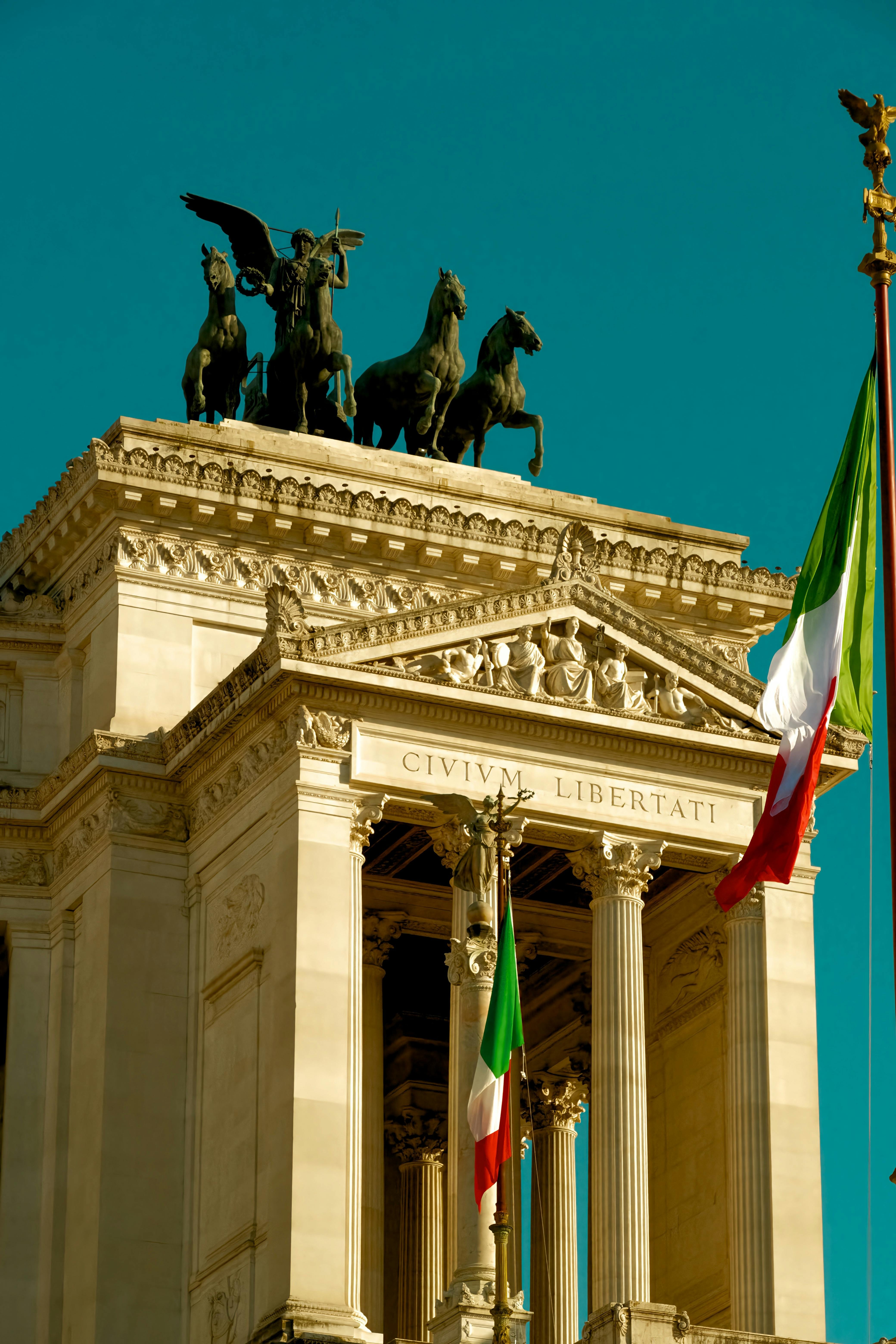Italy
Coalition Momentum: A New Era for Liberals in Local Italian Politics

Altare della Patria in Rome
© Gabriele Donofrio. PexelsAbruzzo, Lombardy, Piedmont and Tuscany were among the 14 regions that held local elections in municipalities with over 15,000 inhabitants, while the national referendums took place simultaneously across the country. More than 100 political parties and civic coalitions fielded candidates in these local elections. In municipalities where no mayoral candidate secured over 50% of the vote, in the first round, the top two contenders advanced to a second-round runoff.
According to results published by the Italian Ministry of the Interior, while some outcomes are still pending final confirmation, one key trend is already clear: coalition politics is here to stay. Centre-left alliances - often including the Five Star Movement - alongside centre-right coalitions and civic lists, have emerged as the main players in Italy’s local political landscape. Together, they reflect a shift toward more collaborative, pragmatic governance at the municipal level.
From Taranto to Ravenna: How Italy’s Liberals Carved Space in Local Councils
Liberal parties like +Europa (Più Europa) and Azione faced strong competition in this crowded landscape but continued to shape the national discourse on civil rights, EU integration, and economic modernization.
+Europa, under the renewed leadership of Riccardo Magi - recently re-elected as party secretary with 69% support - remains a vocal advocate for civil liberties and pro-European values. The party’s modest but steady performance in local elections underscored its continued relevance, particularly in larger cities and metropolitan areas, where liberal themes find more resonance among the electorate.
Azione, led by Carlo Calenda, likewise showed resilience, particularly in urban municipalities. It maintained its role as a centrist, pragmatic force offering an alternative to the more polarized narratives of the left and right. Though neither party captured large percentages of the vote, both succeeded in securing local council representation - an important foothold for long-term influence.
For example, in the southern city of Taranto, a coalition list led by the Partito Liberale Italiano (PLI) and Azione - alongside six other parties - received 1.77% of the vote and secured one seat on the city council in support of the center-left mayoral candidate, Pietro Bitetti. In Ravenna, the joint list “Progetto Ravenna”, bringing together +Europa, Azione, Italia Viva, and the Italian Socialist Party, garnered 2.43% of the vote and also earned a seat on the municipal council.

Referendum ballots
© FNF EuropeThe Referendums: A Missed Opportunity
The five national referendums held concurrently with the second-round elections were widely seen as a potential catalyst for liberal mobilization. Four proposals focused on labor law reforms, including key aspects of the 2016 Jobs Act, while one centered on expanding citizenship rights—a topic promoted by +Europa and Riccardo Magi.
Despite high expectations, the referendums failed to reach the required quorum of 50% needed for validation, with nationwide turnout stagnating at just 30.6%. As a result, the votes were rendered non-binding—even though the “Yes” option prevailed across all five referendum ballots, which focused on key issues such as labor laws and citizenship.
- Reinstatement for Unlawful Dismissals (Yes: 89%)
- Dismissals and Compensation Limits for Small Companies – Partial abolition. The maximum severance compensation may be increased to up to 10 months for workers with 10 years of service, and up to 14 months for those with more than 20 years of service (Yes: 87.6%)
- Protection of Fixed-Term Contracts. Limits introduced on the number of renewals for temporary contracts (Yes: 89%)
- Liability for Workplace Accidents (Yes: 87.35%)
- Italian Citizenship. Residency requirement for foreigners reduced from 10 to 5 years (Yes: 65.49%)
Magi, a key advocate of the citizenship referendum, had earlier criticized the government’s decision to schedule the vote in early June - overlapping with school exams and the start of summer holidays - calling it a “deliberate attempt to suppress turnout,” in statements to Italian media. Just days before the vote, Magi staged a Ghostbusters-themed protest in the national Parliament, drawing widespread attention and symbolizing the frustration among liberals over what they saw as procedural tactics designed to undermine democratic participation.
Low Turnout, Lasting Questions: Where Should Europe Be Looking?
For liberals in Germany and across Europe, Italy’s recent elections offer valuable insights. First, they highlight the structural hurdles liberal parties often face in local contexts, where regional dynamics and entrenched political networks tend to overshadow more ideologically driven movements. Second, the results point to the importance of building broad-based coalitions and aligning more closely with tangible local priorities - such as housing, sustainable mobility, and innovation - areas that also present strong potential for cross-border collaboration.
Ultimately, while +Europa and Azione did not make sweeping electoral gains, their continued visibility and institutional presence demonstrate a quiet endurance. As Europe’s liberal movements adapt to a rapidly shifting political environment, Italy’s experience reminds us that persistence and principled advocacy can still find space - even in a crowded and complex democratic arena.
Odilia Abreu is a policy analyst specializing in migration, political diaspora, and liberal thought in Southern Europe. Her work focuses on the intersection of mobility, democratic governance, and regional integration, with particular attention to how diasporic communities influence electoral politics and policymaking across the EU. Odilia Abreu currently works as a freelance expert, advising organizations including the Friedrich Naumann Foundation for Freedom (FNF) Europe in Brussels, where she provides analyses on political developments in Spain, Portugal, and Italy.
